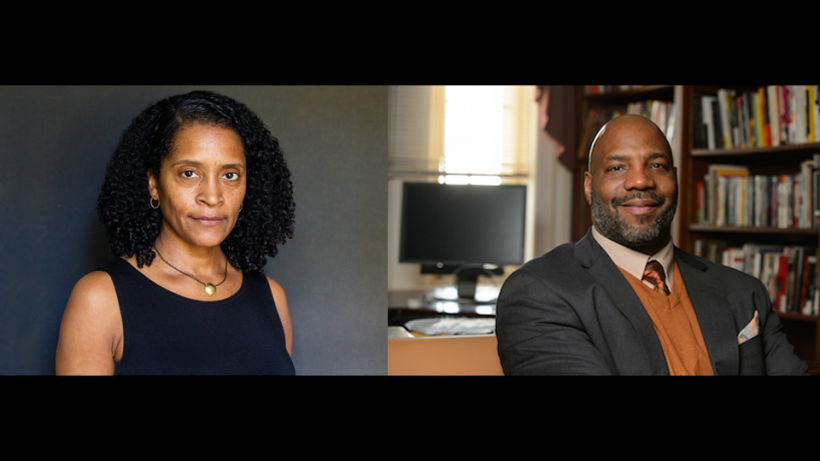Picturing Black Deaths: Conversation with Jelani Cobb and Emily Bernard

Emily Bernard, PhD, Author, Black is the Body: Stories from My Grandmother’s Time, My Mother’s Time, and Mine, and Julian Lindsay Green & Gold Professor of English, The University of Vermont; Jelani Cobb, PhD, Staff Writer, The New Yorker, and Ira A. Lipman Professor of Journalism, Columbia Journalism School
Video of the killings of Black citizens by police and in racist attacks have sparked sweeping protest. But the ongoing flood of shocking videos also has other consequences, especially for communities of color. How do journalists balance urgent news value against sensationalism and trauma?
Event video:
Emily Bernard is the Julian Lindsay Green & Gold Professor of English at The University of Vermont. She holds a B. A. and a Ph. D. in American Studies from Yale University. Bernard has received fellowships from the Alphonse A. Fletcher Foundation, the Ford Foundation, the National Endowment for the Humanities, the MacDowell Colony, the Vermont Arts Council, and the W. E. B. DuBois Institute at Harvard University.
She was the inaugural James Weldon Johnson Senior Research Fellow in African American Studies at Yale University. Her published works include: Remember Me to Harlem: The Letters of Langston Hughes and Carl Van Vechten, which was a New York Times Notable Book of the Year; Some of My Best Friends: Writers on Interracial Friendship, which was chosen by the New York Public Library as a Book for the Teen Age; and Michelle Obama: The First Lady in Photographs, which received a 2010 NAACP Image Award for Outstanding Literary Work. Carl Van Vechten and the Harlem Renaissance: A Portrait in Black and White, was published by Yale University Press in 2012.
Bernard’s essays have been reprinted in Best American Essays, Best African American Essays and Best of Creative Nonfiction. Her most recent book, Black is the Body: Stories from My Grandmother’s Time, My Mother’s Time, and Mine, was published by Alfred A. Knopf in the spring of 2019. Black is the Body won the Christopher Isherwood Prize for autobiographical prose in the Los Angeles Times 2020 Book Prizes competition. A native of Nashville, Tennessee, Emily Bernard is a 2020 Andrew Carnegie Fellow.
Jelani Cobb is the Ira A. Lipman Professor of Journalism at Columbia Journalism School. He has contributed to The New Yorker since 2012, and became a staff writer in 2015. He is the recipient of the 2015 Sidney Hillman Award for Opinion and Analysis writing and writes frequently about race, politics, history and culture.
He was most recently an Associate Professor of History and Director of the Africana Studies Institute at the University of Connecticut where he specialized in post-Civil War African American history, 20th century American politics and the history of the Cold War. Dr. Cobb is also a recipient of fellowships from the Fulbright and Ford Foundations.
He is the author of The Substance of Hope: Barack Obama and the Paradox of Progress as well as To the Break of Dawn: A Freestyle on the Hip Hop Aesthetic. His articles and essays have appeared in the Washington Post, The New Republic, Essence, Vibe, The Progressive, and TheRoot.com. His collection The Devil and Dave Chappelle and Other Essays was published in 2007. He has also contributed to a number of anthologies including In Defense of Mumia, Testimony, Mending the World and Beats, Rhymes and Life.
He is editor of The Essential Harold Cruse: A Reader. Born and raised in Queens, New York. He is a graduate of Howard University and Rutgers University where he received his doctorate in American History.